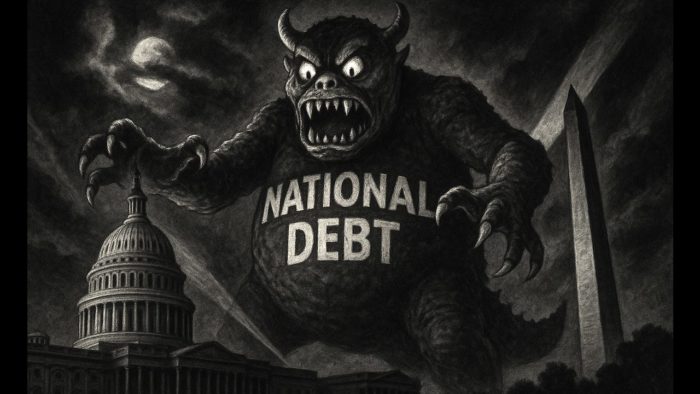(The Center Square) A new report from the Congressional Budget Office estimates that the federal budget deficit reached $2 trillion over the past 11 months, painting a dire picture of the U.S.’s fiscal health.
Since fiscal year 2025 began last October, the government spent $6.7 trillion while collecting $4.7 trillion in revenues. That amounts to a 6% and 7% increase, respectively, compared to the same time period a year ago.
Due to upcoming cost-saving changes to federal student loan programs, however, the federal deficit over the entirety of fiscal year 2025 – which ends Sept. 30 – will ultimately total $1.8 trillion.
Multiple government departments increased their outlays as well, with the departments of Defense, Veterans Affairs, Homeland Security, and Agriculture cumulatively spending $121 billion more than 11 months ago.
The Department of Education, however, slashed its spending by 44%, the $110 billion reduction due to President Donald Trump’s partial dismantling of the department in March. That decrease – paired with higher tax revenues, a $95 billion boost from Trump’s tariff policy, and other revenue sources – ultimately led to CBO’s current deficit estimates falling slightly short of its predictions in January.
CBO’s report, released Tuesday, also reveals that the deficit for the month of August totaled $360 billion, or 5% less than in August 2024.
If the U.S. continues down this fiscal path, the Committee for a Responsible Federal Budget estimates national debt will surpass $53 trillion by 2035. CRFB has urged Congress to make deficit reduction a major priority in the fiscal year 2026 government funding process, as well as any future budget reconciliation bills.
“The national debt is currently as large as the economy and interest costs are surging to record highs,” CRFB stated Monday. “Failure to stem the growth in our debt will push up interest rates, slow income growth, leave less fiscal space for future emergencies, threaten national security, and increase the risk of a debt spiral and ultimately a debt crisis.”

